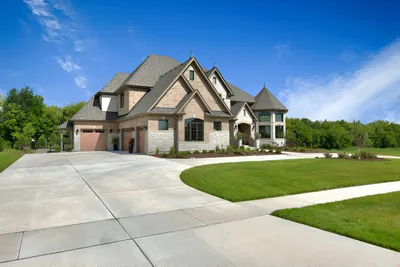Chicago, known for its stunning architecture, vibrant cultural scene, and diverse neighborhoods, is a city that offers an array of living options. If you are contemplating whether to buy or rent in this bustling metropolis, you are not alone. This guide aims to provide a comprehensive comparison of buying versus renting in Chicago, helping you make an informed decision that aligns with your financial goals and lifestyle preferences.
1. Financial Considerations
Buying: Long-Term Investment
Investing in real estate is often seen as a way to build wealth over time. When you buy a property in Chicago, you are not just acquiring a place to live but also making an investment. Real estate in Chicago has historically appreciated, although market conditions can fluctuate. Homeownership can also offer tax benefits, such as deductions on mortgage interest and property taxes.
Renting: Flexibility and Lower Upfront Costs
Renting, on the other hand, requires lower upfront costs compared to buying. You don’t need a large down payment or worry about closing costs. Renting can also offer more flexibility, allowing you to move more easily if your circumstances change, such as a job relocation or a desire to experience a different neighborhood.
2. Market Trends in Chicago Real Estate
Current Trends
The Chicago real estate market has been resilient, with steady demand for both rental and purchase properties. Recent trends indicate a slight increase in home prices, making it a potentially good time to buy before prices rise further. However, it’s essential to stay updated with market reports and forecasts to understand the best timing for your investment.
Neighborhood Insights
Different neighborhoods in Chicago offer varying levels of affordability and investment potential. Areas like Lincoln Park, Lakeview, and Wicker Park are popular among buyers for their strong community feel and excellent amenities. In contrast, renting might be more appealing in downtown areas like the Loop, where high-rise apartments offer convenient access to the city’s business districts and nightlife.
3. Lifestyle Considerations
Homeownership: Stability and Personalization
Owning a home provides stability and the freedom to personalize your space. You can make modifications and improvements without needing landlord approval, which can enhance your quality of life and potentially increase your property’s value. Homeownership also fosters a sense of community and permanence.
Renting: Convenience and Amenities
Renting often comes with the benefit of included amenities, such as maintenance services, fitness centers, and communal spaces. This convenience can be especially appealing if you lead a busy lifestyle or prefer not to handle repairs and upkeep personally. Additionally, renting allows you to live in prime locations that might be unaffordable to buy.
4. Financial Planning and Future Goals
Building Equity vs. Saving for Investments
Buying a home means you are building equity over time, which can be a significant financial asset. However, it also ties up a substantial amount of money in one investment. If you prefer to diversify your investments, renting might allow you to allocate your savings into different financial vehicles, such as stocks, bonds, or a business.
Long-Term vs. Short-Term Horizons
Consider your long-term plans. If you intend to stay in Chicago for many years, buying might make more sense. However, if your plans are uncertain, renting provides the flexibility to adapt to future changes without the commitment of a mortgage.
5. Impact of Interest Rates
Low-Interest Rates: A Boon for Buyers
Current low-interest rates can make buying more attractive by lowering monthly mortgage payments and overall loan costs. It’s crucial to lock in favorable rates to maximize your investment’s value.
Rising Rates: A Potential Challenge
If interest rates rise, it could increase the cost of borrowing, making home purchases more expensive. Renting can provide a buffer against these fluctuations, allowing you to manage your housing costs more predictably.
Conclusion
The decision to buy or rent in Chicago depends on your financial situation, lifestyle preferences, and long-term goals. Buying offers the benefits of building equity and stability, while renting provides flexibility and lower upfront costs. By carefully weighing the pros and cons, you can make a choice that best suits your needs.
Frequently Asked Questions
Is buying a home in Chicago a good investment?
Yes, buying a home in Chicago can be a good investment, especially in neighborhoods with high demand and potential for appreciation. Real estate historically appreciates, and owning property can offer financial benefits like tax deductions.
What are the advantages of renting in Chicago?
Renting in Chicago offers flexibility, lower upfront costs, and access to amenities such as maintenance services, fitness centers, and communal spaces. It’s an ideal option for those who may relocate or prefer less responsibility.
How do I decide whether to buy or rent in Chicago?
Consider factors such as your financial situation, long-term plans, and lifestyle preferences. If you value stability and building equity, buying may be better. If you need flexibility and lower initial costs, renting could be the right choice.
What are the current trends in Chicago’s real estate market?
The Chicago real estate market is experiencing steady demand with a slight increase in home prices. Popular neighborhoods for buying include Lincoln Park and Wicker Park, while renting is common in downtown areas like the Loop.
How can The Hampton Collective help me with my real estate needs in Chicago?
The Hampton Collective offers expert guidance on both buying and renting in Chicago. We provide personalized service to help you find the perfect home or rental property, ensuring you make an informed decision based on your unique needs.
By thoroughly evaluating your options and consulting with experts like The Hampton Collective, you can confidently choose whether buying or renting in Chicago is the best move for you.


